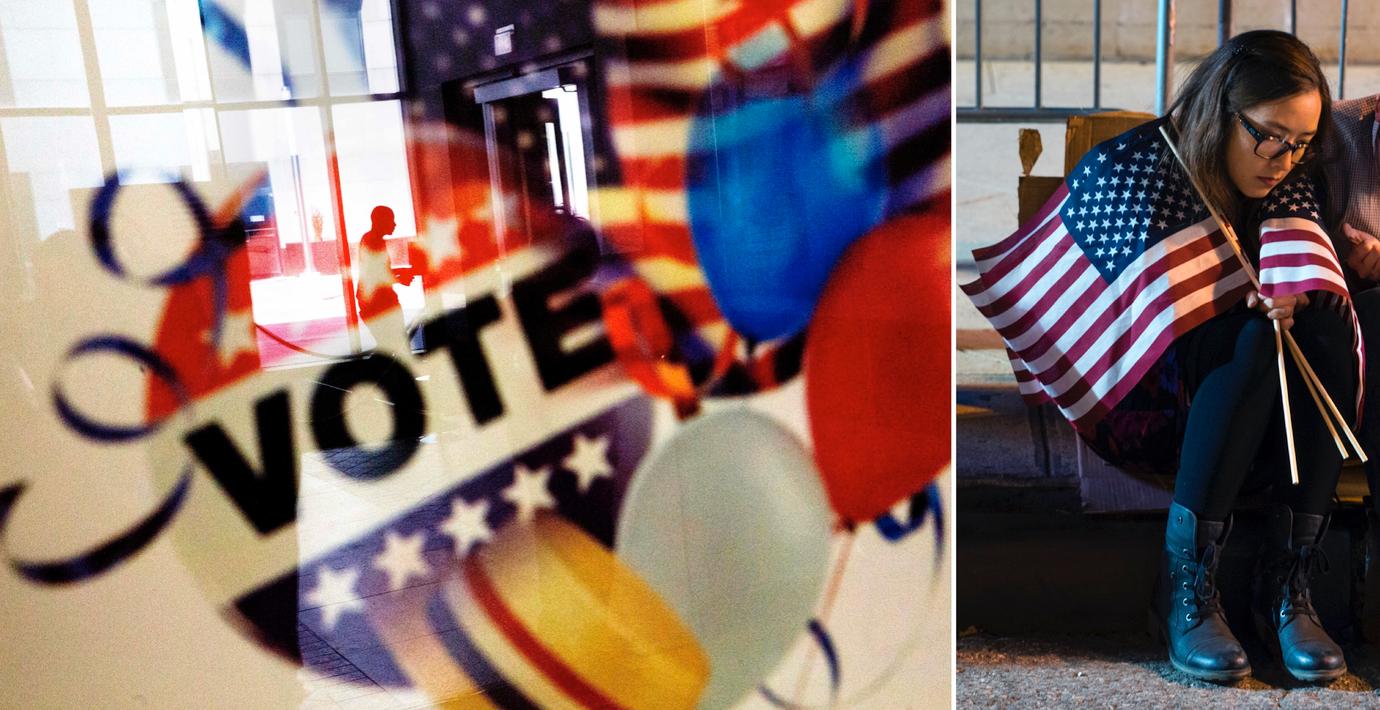
Kritiken: Borde skrotat valsystemet på 1800-talet
Gör om USA:s valsystem. Det skriver den förre demokratiske presidentkandidaten Michael Dukakis i ett mejl till Politico: ”Hillary vann det här valet med, när alla röster räknats, med troligen över en miljon röster. Så varför tar inte hon plats i Vita huset i januari?”
Dukakis skriver att systemet med elektorsröster borde avskaffats för 150 år sedan och att frågan borde vara högst upp på Demokraternas att göra-lista. Färre amerikaner röstade på Donald Trump än på Hillary Clinton – men han vann rätt delstater och därmed valet.
bakgrund
Det amerikanska valsystemet
Wikipedia (en)
The United States Electoral College is the body that elects the president and vice president of the United States every four years. Citizens of the United States do not directly elect the president or the vice president; instead they choose "electors", who pledge beforehand to vote for the candidate who wins in their party.
Each state gets to choose as many electors as the combined total of the number of U.S. senators and representatives to which the state is entitled. The District of Columbia gets at most the number of electors it would have if it were a state but not more than the number of electors of the least-populous state (currently three). There are therefore currently 538 electors, corresponding to the 435 representatives and 100 senators in the House of Representatives and the Senate, plus the three electors for the District of Columbia. The Constitution bars any federal official, elected or appointed, from being an elector.
All states except Maine and Nebraska have chosen electors on a "winner-take-all" basis since the 1880s. Under the winner-take-all system, all the electors that a state chooses are those that have pledged to vote for the candidate who ends up getting the most votes in that state. Maine and Nebraska use the "congressional district method", selecting one elector within each congressional district by popular vote and selecting the remaining two electors by a statewide popular vote. Although no elector is required by federal law to honor their pledge, there have been very few occasions when an elector voted contrary to a pledge. The Twelfth Amendment, in specifying how a president and vice president are elected, requires each elector to cast one vote for president and another vote for vice president.
The candidate who receives an absolute majority of electoral votes (currently 270) for the office of president or of vice president is elected to that office. The Twelfth Amendment provides for what happens if the Electoral College fails to elect a president or vice president. If no candidate receives a majority for president then the House of Representatives will select the president, with each state delegation (instead of each representative) having only one vote. If no candidate receives a majority for vice president, then the Senate will select the vice president, with each senator having one vote.
bakgrund
Michael Dukakis
Wikipedia (en)
Michael Stanley Dukakis (/dᵿˈkɑːkᵻs/; born November 3, 1933, Greek: Δουκάκης) is an American politician who served as the 65th and 67th Governor of Massachusetts, from 1975 to 1979 and 1983 to 1991 respectively. He is the longest-serving governor in Massachusetts history and only the second Greek-American governor in U.S. history, after Spiro Agnew. He was nominated by the Democratic Party for president in the 1988 election, but lost to the Republican candidate, Vice President George H. W. Bush.
Tidigare rapportering:
Omni är politiskt obundna och oberoende. Vi strävar efter att ge fler perspektiv på nyheterna. Har du frågor eller synpunkter kring vår rapportering? Kontakta redaktionen



